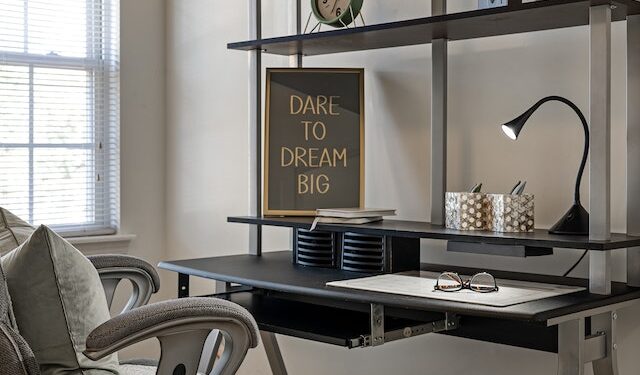Introduction:
Furniture plays a crucial role in creating conducive learning environments, especially in educational institutions. The EN 1729-1:2015 standard, titled “Furniture – Chairs and tables for educational institutions – Part 1: Functional dimensions,” establishes essential criteria for the functional dimensions of chairs and tables intended for use in educational settings. This standard aims to ensure ergonomic design, durability, and safety, all of which are paramount for the well-being and comfort of students.
EN 1729-1:2015 Overview:
The EN 1729-1:2015 standard sets forth detailed guidelines for the functional dimensions of chairs and tables used in educational institutions. It covers aspects such as seat and table height, depth, and dimensions, taking into account the different age groups of students. The standard recognizes the diverse needs of educational spaces, acknowledging that furniture must be tailored to the specific requirements of students to promote healthy posture, concentration, and overall well-being.
CDG’s Commitment to Excellence:
As a leading furniture testing laboratory in India, CDG has consistently demonstrated its commitment to excellence in conducting tests according to the EN 1729-1:2015 standard. CDG stands out for its comprehensive approach to furniture testing, combining state-of-the-art facilities, a highly skilled team of experts, and a dedication to ensuring that all tested products meet or exceed the specified standards.
Testing Process at CDG:
CDG employs a meticulous testing process that aligns with the requirements outlined in EN 1729-1:2015. The laboratory utilizes advanced testing equipment and follows industry best practices to evaluate chairs and tables intended for educational institutions. The testing process encompasses a range of criteria, including but not limited to:
Dimensional Accuracy:
CDG ensures that the furniture dimensions conform precisely to the standards specified in EN 1729-1:2015. This involves measuring seat and table heights, depths, and other critical dimensions to guarantee compliance.
Ergonomic Evaluation:
The laboratory assesses the ergonomic design of chairs and tables, focusing on factors such as lumbar support, seat tilt, and overall comfort. This ensures that the furniture contributes positively to the students’ physical well-being.
Durability Testing:
CDG evaluates the durability of educational furniture to ensure its ability to withstand the rigors of daily use in a school environment. This includes assessing the strength of materials, structural integrity, and resistance to wear and tear.
Safety Compliance:
CDG places a strong emphasis on safety compliance, conducting tests to verify that the furniture meets safety standards outlined in EN 1729-1:2015. This includes assessing stability, load-bearing capacity, and other critical safety parameters.
Expertise of CDG’s Team:
The proficiency of CDG in conducting tests as per EN 1729-1:2015 is attributed to its highly qualified and experienced team of experts. The laboratory employs furniture testing specialists who possess in-depth knowledge of international standards, including the EN 1729 series. This expertise enables CDG to provide accurate and reliable testing services that meet the highest industry standards.
State-of-the-Art Testing Facilities:
CDG takes pride in its state-of-the-art testing facilities, equipped with the latest technology and instrumentation. The laboratory invests in cutting-edge equipment that allows for precise and detailed assessments of educational furniture according to EN 1729-1:2015. This commitment to technological advancement ensures that CDG remains at the forefront of furniture testing capabilities.
CDG’s Contribution to Industry Advancement:
Beyond conducting tests for compliance, CDG actively contributes to the advancement of the furniture industry. The laboratory engages in research and development initiatives to stay abreast of emerging trends, materials, and design considerations. This proactive approach positions CDG as not just a testing facility but a partner in promoting innovation and quality in educational furniture.
Client-Centric Approach:
CDG’s client-centric approach sets it apart in the industry. The laboratory collaborates closely with furniture manufacturers, educational institutions, and other stakeholders to understand their specific needs and challenges. This collaborative approach ensures that CDG’s testing services are tailored to the unique requirements of each client, facilitating the development of furniture that not only meets standards but exceeds user expectations.
Conclusion:
In conclusion, CDG’s efficiency in conducting tests according to the EN 1729-1:2015 standard reflects its unwavering commitment to quality, safety, and innovation in educational furniture. The laboratory’s comprehensive testing process, coupled with the expertise of its team and state-of-the-art facilities, positions CDG as a trusted partner for manufacturers and stakeholders seeking assurance that their products meet the highest industry standards. CDG’s contribution to the industry extends beyond compliance testing, making it a driving force in the evolution of educational furniture towards enhanced ergonomics, durability, and safety. As the demand for well-designed and functional educational furniture continues to grow, CDG remains at the forefront, setting the benchmark for excellence in furniture testing in India.








